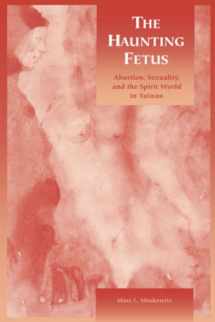
The Haunting Fetus: Abortion, Sexuality, and the Spirit World in Taiwan
Book details
Summary
Description
The Haunting Fetus focuses on the belief in modern Taiwan that an aborted fetus can return to haunt its family. Although the topic has been researched in Japan and commented on in the Taiwanese press, it has not been studied systematically in relation to Taiwan in either English or Chinese. This fascinating study looks at a range of topics pertaining to the belief in haunting fetuses, including abortion, sexuality, the changing nature of familial power structures, the economy, and traditional and modern views of the spirit world in Taiwan and in traditional Chinese thought. It addresses the mental, moral, and psychological aspects of abortion within the context of modernization processes and how these ramify through historical epistemologies and folk traditions.
The author illustrates how images of fetus-ghosts are often used to manipulate women, either through fear or guilt, into paying exorbitant sums of money for appeasement. He argues at the same time, however, that although appeasement can be expensive, it provides important psychological comfort to women who have had abortions as well as a much-needed means to project personal and familial feelings of transgression onto a safely displaced object. In addition to bringing to the surface underlying tensions within a family, appeasing fetus-ghosts, like other dealings with supernatural beings in Chinese religions, allows for atonement through economic avenues. The paradox in which fetus-ghost appeasement simultaneously exploits and assists evinces the true complexity of the issue--and of religious and gender studies as a whole.


We would LOVE it if you could help us and other readers by reviewing the book
Book review





